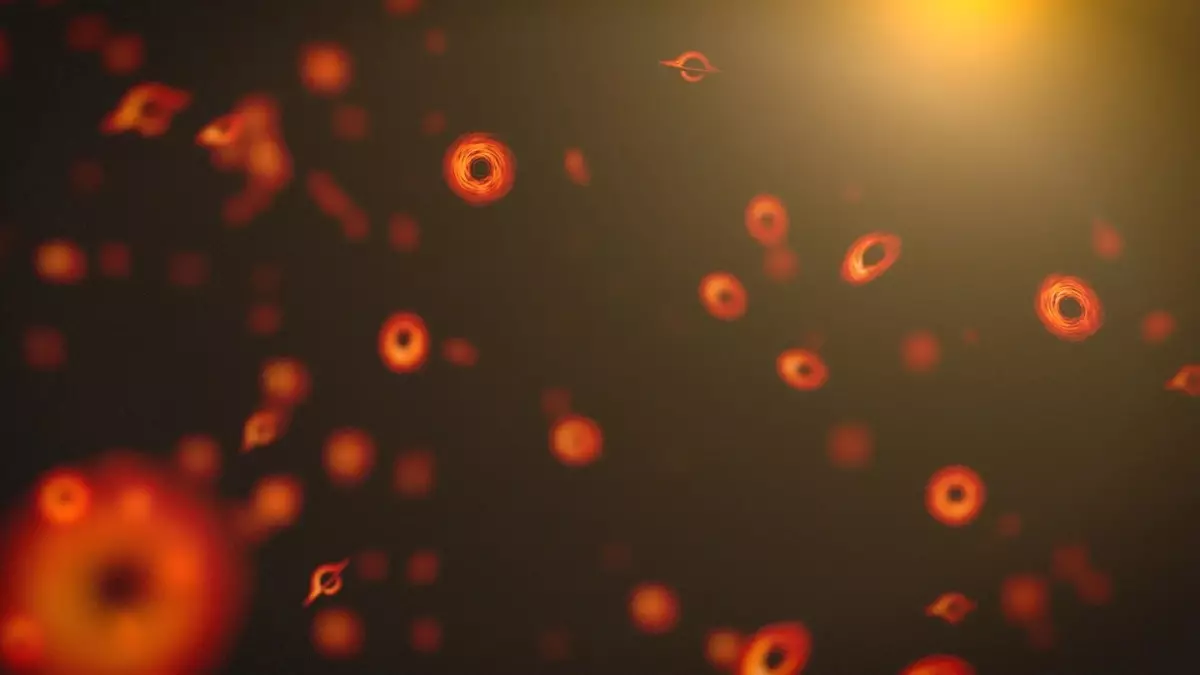Recent research has begun to reframe our understanding of the universe by introducing the compelling notion that primordial black holes (PBHs) may exist within our solar system. These black holes, theorized to have emerged in the chaotic conditions of the early universe, challenge our conventional perceptions of black holes and their formation. Unlike their stellar counterparts that result from the collapse of massive stars, primordial black holes are characterized by their minuscule size and rapid velocities. As described in studies published in Physical Review D, these PBHs may have masses similar to asteroids yet occupy a space comparable to that of hydrogen atoms. This paradox begs us to consider a fundamental question: could these tiny titans be influencing the intricacies of celestial mechanics around us?
The significance of primordial black holes extends beyond mere curiosity; they are posited to be integral to the ongoing mystery of dark matter, which constitutes about 85% of the total mass of the universe. Scientists speculate that these black holes might form in dense regions of early cosmic history, collapsing under their own gravitational influence. Their potential role in dark matter makes them a focal point for astronomers and physicists striving to unravel the intricate workings of the cosmos. Dr. Sarah Geller, a cosmologist at the University of California, Santa Cruz, has voiced this connection, suggesting that the gravitational effects of PBHs could be responsible for the subtle wobbles observed in the orbits of planets—an area that her research team aims to investigate further through detailed modeling.
The search for primordial black holes has provoked innovative methodologies for their potential detection. Dr. Sébastien Clesse, along with Dr. Bruno Bertrand, proposed a fascinating approach that involves monitoring the movements of satellites. They speculate that the gravitational pull of these small black holes might cause minor shifts in satellite altitudes, which could serve as an observational signature of their existence. Existing probes in space, it has been argued, could be adapted to discern these slight disturbances, particularly for the smaller PBHs that characterize their theoretical spectrum.
Despite these exciting developments, skepticism surrounds the identification and characterization of primordial black holes. Dr. Andreas Burkert from Ludwig-Maximilians-University Munich has raised critical concerns regarding the feasibility of detection. He highlights the possibility that other cosmic phenomena, such as solar winds or interactions with asteroids, could mimic the gravitational signatures expected from PBHs. This complexity underscores a broader challenge in astrophysics: distinguishing the true sources of gravitational effects in a crowded and variable cosmic landscape.
The prospect of discovering primordial black holes within our solar system not only opens up new avenues for exploration but also challenges our existing frameworks of astrophysical theories. As investigations into these enigmatic entities continue, they may provide significant insights into longstanding questions regarding the nature of dark matter and the formation of the universe itself. The journey into understanding these black holes promises to reshape some foundational concepts in cosmology, calling us to reconsider the universality of the cosmic tapestry in which we exist.


Leave a Reply